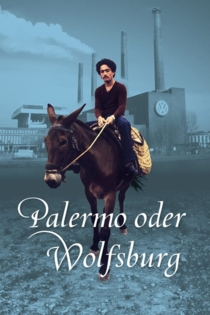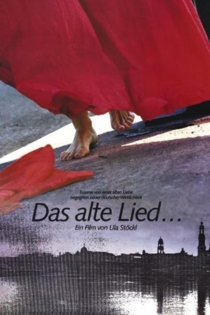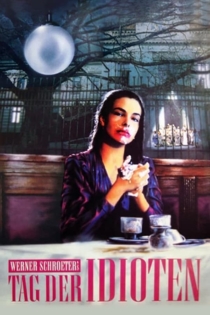
Ula Stöckl
1938 (88 лет)Der kleine Löwe und die Großen
Ula Stöckl
Gaby Gasser, Hans Peter Hallwachs
Manfred takes his nephew, Martin, on a business trip to Rome. They stay with Manfred's brother Georg, who lives in Rome. On the way there Manfred and Martin meet Lilo, a girl who is also on her way to Rome.
The Little Lion And The Big Ones

Die Widerständigen "also machen wir das weiter"
Katrin Seybold, Ula Stöckl
‘The films I make have to get made, because when these people are dead they’re dead and all we’ll have left are Gestapo records, the records of the perpetrators. We can’t accept that.’ This quote graces the beginning of Katrin Seybold’s last film which was finished by her long-standing friend and colleague Ula Stöckl following Seybold’s death on 27 June, 2012.
Die Widerständigen "also machen wir das weiter"
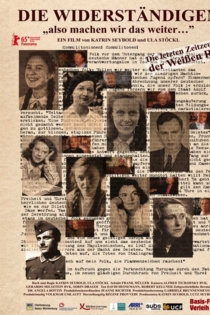
Der Schlaf der Vernunft
Ula Stöckl
Ida Di Benedetto, Christoph Lindert
Dea, gynecologist and scientist, and her colleagues have for the last few months been preparing a campaign against the local pharmaceutical industry. A campaign, which is linked to Dea's published findings concerning harmful side effects of the pill. For years Dea and her husband Rheinhard have been defending opposing sides as to the culpability of the company. Rheinhard, who is also a leading scientist like Dea, is a high-ranking employee of the concern. In the meantime Reinhard and Dea's 2 daughters have grown up. The daughter of the company's boss, Johanna, is Dea's assistant and Reinhard's lover.
Sleep of Reason

Film Beyond Cinema: The Dumpster Kid Experiment and Other Utopias
Robert Fischer
Edgar Reitz, Ula Stöckl
For over half a century, the filmmaker Edgar Reitz, one of the signatories of the Oberhausen Manifesto and a pioneer of epic film narration, has explored, as a practitioner and theoretician, the rules and limits of cinema, which he always seeks to break and extend in new ways. One example of his tireless search and research are the Geschichten vom Kübelkind, which he co-directed with Ula Stöckl in 1969/70, 22 absurdly funny, subversive and anarchistic short films of different lengths, which consciously oppose all conventions, with incredible success. The films remain unrivalled in their Dadaistic inventiveness.
Film Beyond Cinema: The Dumpster Kid Experiment and Other Utopias
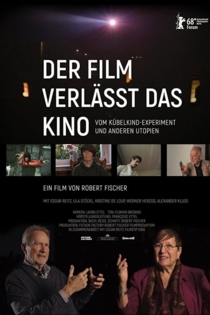
Geschichten vom Kübelkind
Edgar Reitz, Ula Stöckl
Kristine De Loup, Bruno Bendel
The Dumpster Kid is an artistic creation: in every story society forces her to learn something. But she, fully grown from the moment of her birth, unquestionably learns more than is called for. This extra knowledge, which is not wanted by society, regularly brings her into danger. Dumpster Kid dies in each story, and across each genre. Her stories are set in a whole range of different time periods. What is a Dumpster Kid?
Tales of the Dumpster Kid
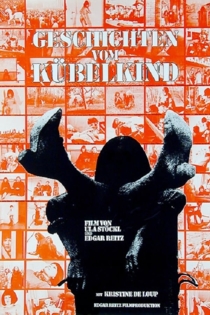
Antigone
Ula Stöckl
Robert Roeschke
The classical Epic is reduced to the bare bones of the action. Despite the seven minutes of turbulent action, it is actually a slow film: in the war against Kreon, one of Antigone's brothers fights for the king, one against him. Both die. One of them is buried; the other is left lying on the street. Antigone goes against the king's wishes and wants to bury her brother. As a punishment Antigone is buried alive behind a wall. Her fiancé, Haimon dies, overcome with grief. Haiman's mother, Eurydike, is so upset by his death that she hangs herself. And just as the old soothsayer predicted, the king himself finds no happiness from all this death: he is killed. That makes 6 deaths, even though the war is over.
Antigone
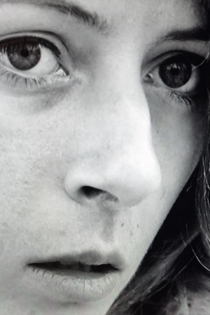
Das goldene Ding
Nikos Perakis, Alf Brustellin
Christian Reitz, Ramin Vahabschadeh
Eleven-year old Jason and his companions, including Hercules and Orpheus, go with the ship "Argo" in the search for the Golden Fleece. With wit and cunning to overcome various obstacles until they reach the destination of their fantastic journey. The experiment is not only due to the popularization or naive glorification of a myth, but the search space occupied by fact that the heroes of antiquity were actually very young.
The Golden Thing
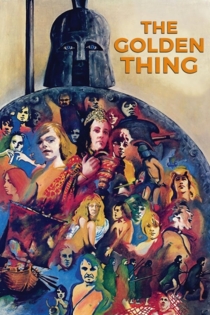
Erikas Leidenschaften
Ula Stöckl
Vera Tschechowa, Karin Baal
Erika and Franziska haven't seen each other for 4 years. 10 years earlier they both felt that they had the same chances in life: both were young, attractive and imaginative. They overlooked what would, right from the outset, separate them: their very different emotional make-up, their different character. In a long nighttime discussion the friends try to clear up these differences - not without some glimmer of hope.
Erika's Passions

The Cat Has Nine Lives
Ula Stöckl
Liane Hielscher, Kristine De Loup
Katharina and Anne go on trips, visit cafés, acquaintances and parties. In doing so, they explore the chances of female emancipation in a male-dominated society. Katharina strives for a life without sentimental compulsion. She believes that she has succeeded, and therefore looks at the beloved friend Anne compassionate, as it can be good. Anne is learning the left jargon. But it is sheer helplessness. She says it's political commitment that she does not trust her friend Katharina, so Anne smiles as well.
The Cat Has Nine Lives
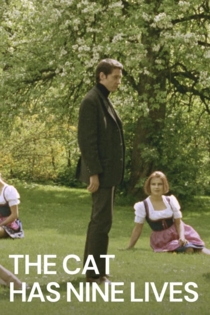
Sonntag Malerei
Ula Stöckl
Alf Brustellin, Bernhard Sinkel
Eva is a single freelance painter. She is in love with a married man. She pretends that she never waits for him, and if he suddenly turns up she acts as if she is surprised. In reality the unresolved relationship is making her so depressed that her work is the only thing that is saving her. In an attempt to break her addiction she enters into a relationship with another man. But the balance she is looking for eludes her, as now she has to choose between the two. But Eva can't: she wants to have an entire life, not part of one. In the form of a sort of filmic diary, Eva now attempts to sort out the puzzle, which is her life.
Sunday Painting

